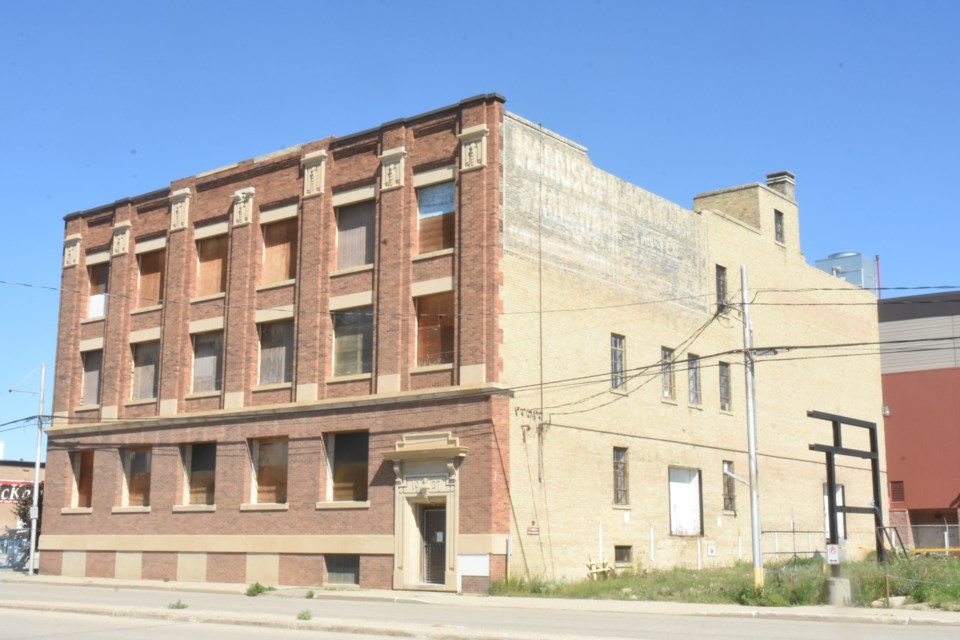MOOSE JAW — Although city hall has no immediate plans for the historic Morrison Blackwood Hardware building, it nevertheless evicted the former owner who lived there for safety and insurance reasons, the city manager says.
The municipality has been the registered owner of the building at 134 Manitoba Street West and an adjacent multi-tenant retail building at 114 Manitoba Street West since Dec. 3, 2021, after acquiring them during a tax dispute with former owner, Vernon Anderson, of D-S Automotive Ltd.
Meanwhile, a King’s Bench judge granted the city a writ of possession on Feb. 28, 2025, which allowed it to evict Anderson from the premises — an eviction that occurred in mid-June.
Anderson is appealing the King’s Bench decision to the Saskatchewan Court of Appeal, while the city has also asked the latter to quash his appeal. Three appeals judges are expected in September to hear the city’s argument to strike Anderson’s request.
During an interview with MooseJawToday.com, city manager Maryse Carmichael said city hall is finalizing all the legal processes now with the building, since it would grow more difficult to close this file the longer the organization waits to address it.
Continuing, the city manager said it would likely take a few months before the municipality completed all the necessary legal activities. Once that occurs, city hall will decide what to do with the buildings as it does with other sites it takes possession of after tax disputes.
It's taken a long time to address the former Blackwood building situation, as city hall has had several discussions with Anderson about his presence there and with the province about acquiring help to evict the man, said Carmichael.
“That’s just the normal process for any landlords, I think, that if they need to have the property vacated, that’s a process that can be used through the province,” she continued.
Carmichael was unwilling to say whether city hall gave Anderson several months’ notice before evicting him, and instead, pointed back to the decision that a King’s Bench judge made in February, granting a writ of possession to the municipality. She noted that the city waited almost five months before it “made (the eviction) happen.”
There were “many reasons” why the city didn’t let Anderson stay until it knew what it was going to do with the building or until the legal processes had concluded, she continued. The main reason is that the property is the city’s responsibility, and similar to other owners, it has obligations to address safety and insurance issues.
“So, we needed to ensure we had full control of the building,” Carmichael added.
Meanwhile, the city manager said city council will likely decide what to do with the building, although she wasn’t sure — nor had she thought about — whether council would discuss the situation in public or behind closed doors.
However, similar to most structures that the municipality obtains through tax enforcement, the most likely scenario is that city hall will sell the building, as it did with a structure on Caribou Street West that will soon become a microbrewery, Carmichael added.




